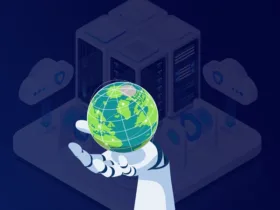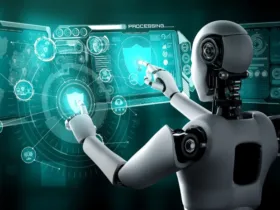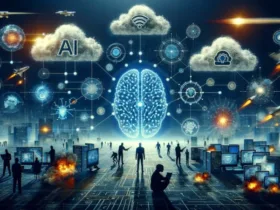The year 2025 is set to redefine the technology and cybersecurity landscape, driven by rapid advancements in artificial intelligence (AI), quantum computing, and emerging technologies. These developments promise transformative opportunities while presenting significant challenges. Experts anticipate a pivotal year where innovation and security must go hand in hand.
Top Technology Trends for 2025
The Rise of Generative AI
- Generative AI will evolve beyond content creation, influencing sectors like healthcare, design, software engineering, and personalized customer experiences.
- Businesses will focus on ethical AI deployment to minimize bias and ensure accountability.
- Advanced AI systems will assist in predictive analytics, optimizing workflows, and driving innovation across industries.
Quantum Computing’s Practical Applications
- Quantum computing will move closer to mainstream adoption, with applications in cryptography, financial modeling, and scientific research.
- Organizations will begin adopting quantum-resistant encryption to prepare for potential vulnerabilities posed by quantum advancements.
Expansion of the Metaverse
- The metaverse will gain traction as virtual and augmented reality (VR and AR) devices become more accessible and advanced.
- Applications will extend to education, training, remote work, gaming, and retail, enabling immersive experiences for users.
5G Revolution and IoT Expansion
- Widespread 5G deployment will enhance the performance of Internet of Things (IoT) devices, enabling smarter homes, cities, and industrial automation.
- Research into 6G technology will begin to shape the future of ultra-fast connectivity.
Blockchain Beyond Cryptocurrency
- Blockchain will find broader use cases in supply chain management, healthcare recordkeeping, and secure digital identities.
- Decentralized finance (DeFi) platforms will grow, offering alternative financial solutions to traditional systems.
Cybersecurity Predictions for 2025
AI-Powered Threat Detection and Attacks
- Cybercriminals will increasingly use AI to craft more sophisticated attacks, including AI-driven phishing and deepfake scams.
- Security teams will leverage AI to detect and respond to threats in real-time, employing machine learning for proactive defense.
Ransomware Evolution
- Ransomware will become more advanced, targeting critical sectors like healthcare, finance, and public infrastructure.
- Double-extortion ransomware, where attackers demand payment to prevent data leaks, will grow in frequency.
Zero Trust Architecture Adoption
- The Zero Trust security model, requiring continuous verification of user and device access, will become a standard across organizations.
- This approach will mitigate risks associated with remote work and cloud-based services.
IoT Security Challenges
- The proliferation of IoT devices will create more attack vectors, requiring robust security protocols to prevent breaches.
- Enhanced encryption and AI-driven monitoring will be crucial for safeguarding connected ecosystems.
Increased Focus on Cybersecurity Skills
- The global shortage of cybersecurity professionals will drive investments in education, certifications, and upskilling programs.
- Organizations will prioritize building in-house expertise to manage advanced threats.
Government and Regulatory Shifts
Stronger Data Privacy Laws
- Governments worldwide will introduce stricter regulations to protect personal data, encouraging businesses to adopt secure practices.
- Compliance with global laws like GDPR and regional legislations will be mandatory for businesses operating internationally.
Collaborative Global Cybersecurity Efforts
- Nations will enhance cooperation to tackle cyber threats, focusing on shared intelligence, standardized protocols, and collaborative frameworks.
Support for Tech Innovation
- Public-private partnerships will drive research and development in AI, quantum computing, and other emerging technologies.
- Incentives like grants and tax benefits will encourage businesses to innovate responsibly.
Key Challenges for 2025
Ethical Concerns in AI Deployment
- The increasing reliance on AI will raise questions about transparency, accountability, and ethical usage.
- Governments and organizations must work together to establish guidelines and frameworks for responsible AI development.
Economic Uncertainty
- Fluctuating economic conditions could impact investments in technology and cybersecurity, creating budget constraints for organizations.
Skill Gap in Emerging Technologies
- The rapid evolution of technology will exacerbate the demand-supply gap for skilled professionals in AI, cybersecurity, and quantum computing.
Geopolitical Risks
- Geopolitical tensions may disrupt global supply chains and affect access to critical technology components.
Opportunities in 2025
Business Innovation
Enterprises can capitalize on AI and IoT to improve operational efficiency and deliver personalized customer experiences.
Public Awareness
Increased awareness of cybersecurity among individuals will lead to better practices like strong passwords and multi-factor authentication.
Sustainability Goals
Green technologies and energy-efficient solutions will align with global sustainability initiatives, creating new avenues for innovation.









